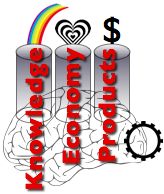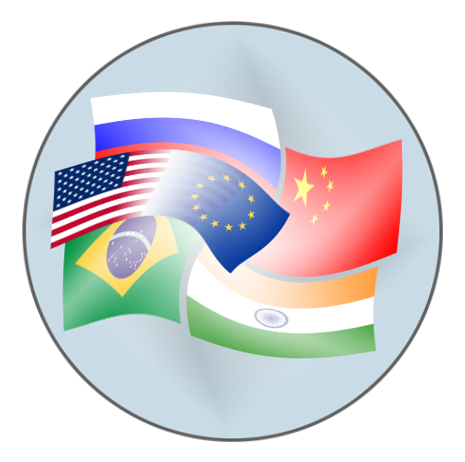
Africa [credit: Mapswire.com]
Africa is a nascent innovation powerhouse, and its leadership will become increasingly obvious during the coming decades, but the seeds are already visible as this post reveals: Africa’s population is exploding, and its young people are adopting tech alternatives to countries’ long-insufficient health, education, and financial infrastructure.
If you’ve been interested in international development for long, you have seen many prognostications about “Africa rising” over the years only to see them fade into oblivion. Predicting profound economic shifts is like predicting earthquakes; you study the driving forces and your algorithms crunch the data.
That isn’t stopping Helga Stegmann. She has led “user experience” agency Mantaray since 2006, and she gave a riveting talk last week in Chicago hosted by partner agency BoldInsight. In my experience, user experience folks rarely have their hands on the pulse of disruptive economic change, but the reason she is an exception reflects that Africa’s economic transformation is happening at the grassroots level (as with most revolutions), and her key orientation is user experience design, so researching users across rapidly evolving interfaces in devices. Follow along with my notes of her remarks […]
 The Potential of Female Leadership explores what lessons we may learn from bonobos’ matriarchal social structure, so we can build stronger, more collaborative human communities and groups. Bonobo Handshake is an enthralling insightful book, which I review here. A tremendous bonus is its similarities to and significant differences from Chimpanzee Politics (reviewed yesterday). The Potential of Female Leadership explores what lessons we may learn from bonobos’ matriarchal social structure, so we can build stronger, more collaborative human communities and groups. Bonobo Handshake is an enthralling insightful book, which I review here. A tremendous bonus is its similarities to and significant differences from Chimpanzee Politics (reviewed yesterday).
Bonobo Handshake was on the same library shelf as Chimpanzee Politics, but it is a very different book, and in delightful ways. At the same time, it offers intriguing insight into bonobos’ behavior, which differs significantly from chimpanzees’ and holds interesting lessons for human societies and groups. Although Woods is not a primatologist per se, she has conducted extensive research with her husband, who is, so explaining scientific experiments forms a key part of this book.
Bonobo Handshake is rare in a surprising way. Deftly and subtly, it contrasts the joy, harmony and matriarchal structure of the bonobos with chimpanzees’ and humans’ patriarchal societies and violence: the wars in and around the two Congos result in the […]
 [UPDATED] Several profound market forces are preparing the ascendancy of Knowledge Economy products, which result from collaboration among designers, artists, engineers, customers and firms. This represents one of the Knowledge Economy’s most exciting-yet-disruptive elements: “products” will cease to be dominated by monolithic factories that mass produce virtually all items that people use and consume. Moreover, people have an inherent joy when they can make things for themselves, their friends and their families—and a dramatic new wave of creativity and innovation is imminent. To help you wrap your mind around Knowledge Economy products, this post will recall what happened to mass media and entertainment industries. [UPDATED] Several profound market forces are preparing the ascendancy of Knowledge Economy products, which result from collaboration among designers, artists, engineers, customers and firms. This represents one of the Knowledge Economy’s most exciting-yet-disruptive elements: “products” will cease to be dominated by monolithic factories that mass produce virtually all items that people use and consume. Moreover, people have an inherent joy when they can make things for themselves, their friends and their families—and a dramatic new wave of creativity and innovation is imminent. To help you wrap your mind around Knowledge Economy products, this post will recall what happened to mass media and entertainment industries.
Knowledge Economy products are conceived, designed, prototyped and fabricated in the Social Channel. Best practices in open source, Agile development, design and Web development will unleash continuous innovation at a scale and pace we’ve never seen before. Knowledge and innovation will be free in the Knowledge Economy because all supporting processes will become an order of magnitude faster and cheaper. Firms and brands that do not recognize and respond quickly enough will become irrelevant.
Most brands […]
At first, it seemed that the machine had tilted, its levers, bells and flippers having hit some kind of glitch, causing us to lose the ball and the bonus points.
 As the curtain rises on the second decade of the twenty-first century, we will see that the machine is actually fine, but it’s become a different game. Quite entirely. To put it mildly, “the economy” is proving to be quite a drama, its pungence largely dependent on where your company or career is wired into it. Although it is quite frowned upon in the U.S. to admit despair, some pundits have even flirted with the moniker, “The Great Recession” to describe the crisis, a faint nod to the Great Depression of the 1930s, but this comparison is off-base. As I have argued for some time, the 2007-2010 “financial crisis” has played a mere overture to the real story, a transformation of the global “economic architecture.” I first heard this deft phrase from His Excellency Shri Kamal Nath, India’s very diplomatic Minister of Commerce in 2008 (coverage here). As the curtain rises on the second decade of the twenty-first century, we will see that the machine is actually fine, but it’s become a different game. Quite entirely. To put it mildly, “the economy” is proving to be quite a drama, its pungence largely dependent on where your company or career is wired into it. Although it is quite frowned upon in the U.S. to admit despair, some pundits have even flirted with the moniker, “The Great Recession” to describe the crisis, a faint nod to the Great Depression of the 1930s, but this comparison is off-base. As I have argued for some time, the 2007-2010 “financial crisis” has played a mere overture to the real story, a transformation of the global “economic architecture.” I first heard this deft phrase from His Excellency Shri Kamal Nath, India’s very diplomatic Minister of Commerce in 2008 (coverage here).
[…]
|
|


 The Potential of Female Leadership explores what lessons we may learn from bonobos’ matriarchal social structure, so we can build stronger, more collaborative human communities and groups. Bonobo Handshake is an enthralling insightful book, which I review here. A tremendous bonus is its similarities to and significant differences from Chimpanzee Politics (reviewed yesterday).
The Potential of Female Leadership explores what lessons we may learn from bonobos’ matriarchal social structure, so we can build stronger, more collaborative human communities and groups. Bonobo Handshake is an enthralling insightful book, which I review here. A tremendous bonus is its similarities to and significant differences from Chimpanzee Politics (reviewed yesterday). [UPDATED] Several profound market forces are preparing the ascendancy of Knowledge Economy products, which result from collaboration among designers, artists, engineers, customers and firms. This represents one of the Knowledge Economy’s most exciting-yet-disruptive elements: “products” will cease to be dominated by monolithic factories that mass produce virtually all items that people use and consume. Moreover, people have an inherent joy when they can make things for themselves, their friends and their families—and a dramatic new wave of creativity and innovation is imminent. To help you wrap your mind around Knowledge Economy products, this post will recall what happened to mass media and entertainment industries.
[UPDATED] Several profound market forces are preparing the ascendancy of Knowledge Economy products, which result from collaboration among designers, artists, engineers, customers and firms. This represents one of the Knowledge Economy’s most exciting-yet-disruptive elements: “products” will cease to be dominated by monolithic factories that mass produce virtually all items that people use and consume. Moreover, people have an inherent joy when they can make things for themselves, their friends and their families—and a dramatic new wave of creativity and innovation is imminent. To help you wrap your mind around Knowledge Economy products, this post will recall what happened to mass media and entertainment industries. As the curtain rises on the second decade of the twenty-first century, we will see that the machine is actually fine, but it’s become a different game. Quite entirely. To put it mildly, “the economy” is proving to be quite a drama, its pungence largely dependent on where your company or career is wired into it. Although it is quite frowned upon in the U.S. to admit despair, some pundits have even flirted with the moniker, “The Great Recession” to describe the crisis, a faint nod to the Great Depression of the 1930s, but this comparison is off-base. As I have argued for some time, the 2007-2010 “financial crisis” has played a mere overture to the real story, a transformation of the global “economic architecture.” I first heard this deft phrase from His Excellency Shri Kamal Nath, India’s very diplomatic Minister of Commerce in 2008 (coverage here).
As the curtain rises on the second decade of the twenty-first century, we will see that the machine is actually fine, but it’s become a different game. Quite entirely. To put it mildly, “the economy” is proving to be quite a drama, its pungence largely dependent on where your company or career is wired into it. Although it is quite frowned upon in the U.S. to admit despair, some pundits have even flirted with the moniker, “The Great Recession” to describe the crisis, a faint nod to the Great Depression of the 1930s, but this comparison is off-base. As I have argued for some time, the 2007-2010 “financial crisis” has played a mere overture to the real story, a transformation of the global “economic architecture.” I first heard this deft phrase from His Excellency Shri Kamal Nath, India’s very diplomatic Minister of Commerce in 2008 (coverage here).